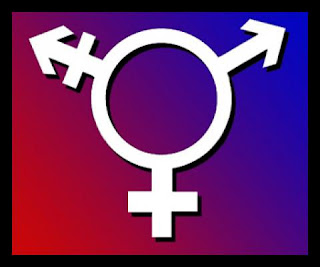Welcome to Jon Swift Roundup Readers!
If you'd like to see the video version of The Erickson Report, go to
https://www.youtube.com/@whoviating/videos.
For more of my writing on transgender rights, try
https://whoviating.blogspot.com/search?q=transgender&max-results=20&by-date=true.
065 The Erickson Report for November 11 to 23, Page 2: Transgender youth know who they are
Now on to a topic I have talked about before and expect I will again.First, do you remember, and it wasn't that long ago, that there was a big surge in stories about "abortion regret?" A wave of orchestrated personal testimonials from women who later regretted having an abortion, some of them describing being tortured by their consciences because "I killed my baby." Remember that? It was a campaign to stampede the public into opposing abortion by playing on fears and any shred of doubt a woman might have about having the procedure.
Well, now we're seeing the same sorts of tales, only this time with transgender youth: "transition regret," with fables of kids either being pressured by parents into transitioning or being convinced it's somehow "cool" to do it and now desperately trying to undo it.
The word "fables" is chosen deliberately because the fact is, the more data we get in, the more research is done, the more the question gets asked, the more we know that transgender youth know who they are, know what is right for them, and the manufactured fears over "transition regret" are just another tactic by the reactionaries to deny the value, indeed the reality, of trans lives.
The results of a study published in 2014 of 50 years of data in Sweden of people who applied to get sexual reassignment surgery - or the more accurate and now preferred name gender affirmation surgery - found that of 767 transgender people who had the surgery, only 2.2 percent of them expressed regret after having it.
That number is even lower for nonsurgical transition methods, like taking puberty blockers. Amsterdam University Medical Center’s Center for Expertise on Gender Dysphoria is the largest gender-identity clinic in the Netherlands. A 2018 study looked at the medical records of transgender young adults who went to a clinic there, covering 1972 to 2015, a period of 44 years. It found that only 1.9 percent of adolescents who started puberty suppressants did not go on to pursue hormone therapy, which is typically the next step in the transition process. Put another way, once they started, 98.1% continued.
And you also have to ask why those who stopped did so. In a 2015 survey of nearly 28,000 people conducted by the US-based National Center for Transgender Equality, only 8 percent of respondents reported detransitioning, and 62 percent of those people said they only detransitioned temporarily, that is, they resumed the process later. Significantly, the most common reason for detransitioning, according to the survey, was pressure from a parent, the opposite of the line the wacko right is pushing. Only 0.4 percent of respondents said they detransitioned after realizing transitioning wasn’t right for them.
And now we have another study, this one published October 20 in The Lancet, one of the most prestigious medical journals in the world. The study looked at data from the Center for Expertise on Gender Dysphoria in Amsterdam from a different angle: Researchers checked the medical records of 720 patients who had historically received at least three months of puberty blockers starting before they turned 18 to see how many continued on to hormone replacement therapy medications.
At the end of the data collection period, 98% of those patients had active hormone replacement therapy prescriptions, effectively confirming the earlier study.
And as before, you don't know why the 2 percent stopped. Indeed, most of those who had stopped had had some form of gonadectomy - that is, gender affirming surgery - and may not know they still need hormone treatment to avoid osteoporosis or other conditions. Some may have decided they are nonbinary and may not want further treatment, some may have decided to detransition, and some may have been pressured into stopping - remember that the most common reason for stopping in that 2015 survey was pressure from a parent.
It is simply a fact: Despite the screeching from the reactionaries, transgender adolescents know who they are.
According to the Williams Institute at the UCLA School of Law, there are an estimated 1.4 million transgender adults in the US. The UK’s Government Equalities Office “tentatively” estimates there are between 200,000 and 500,000 trans people in Britain and Northern Ireland.
Even if there are as many trans youth in the US as there are adults and that combined estimate is off by an order of magnitude - that is, the total is 10 times the estimate - we'd still be talking about 8% of the population.
So much hatred, so much bile, so much fear, directed toward so few people. And driven almost entirely by cruel exploitation of bigotry in pursuit of political power and selfish gain. It really is a moral disgrace.





No comments:
Post a Comment